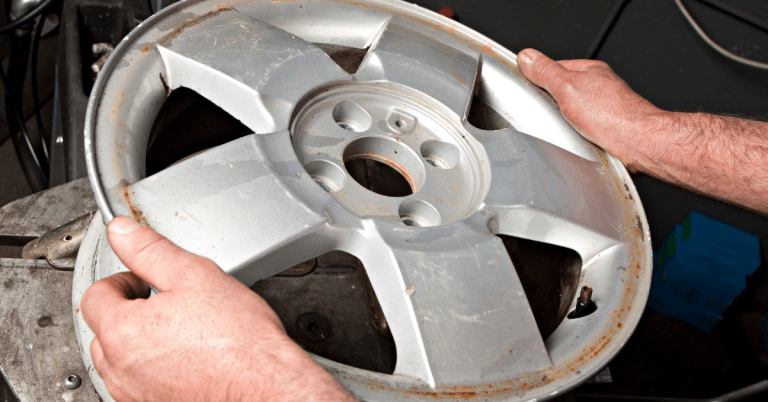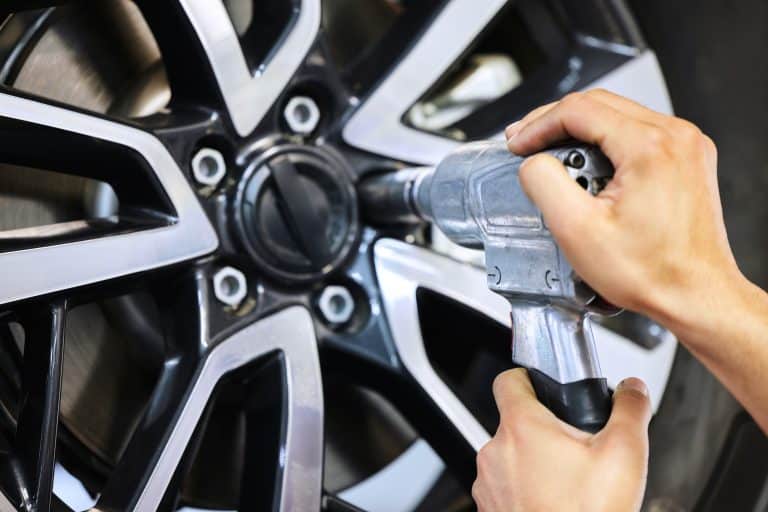Winter brings snow and ice, but it also brings road salt. This white powder keeps our roads safe, but it causes big problems for your alloy wheels. Let’s look at why winter road salt damages your wheels and how proper refurbishment can fix them.
Why Road Salt Damages Your Wheels
Road salt is like table salt, but with bigger grains. Councils spread it on roads during winter to melt snow and ice. This makes driving safer, but creates problems for your wheels.
Salt is harsh on metal. When it mixes with water and oxygen, it speeds up rust. Salt water eats away at metal much faster than plain water. If your wheels have small scratches or chips, salt gets into these gaps in just a few days and starts eating the metal underneath.
The problem gets worse because rust takes up more space than normal metal. This means rust spreads and can even make your wheels stick to your car, making it very hard to change a tyre.
What Happens During Winter
Your alloy wheels face several problems in winter:
Salt Build-up: Every time you drive on treated roads, salt spray sticks to your wheels. The longer the salt stays on your wheels, the faster damage happens.
Temperature Changes: Your wheels heat up and cool down constantly. When you park in a warm garage after driving in cold weather, salty snow melts and creates perfect conditions for rust.
Hidden Damage: Some damage is hard to see because it’s behind the tyre or inside the rim. By the time rust shows on the front of the wheel, it’s already got a strong hold inside.
Pitting: Small holes appear on the wheel surface. This makes wheels look bad and weakens them too.
Signs Your Wheels Need Help
After winter, watch for these warning signs:
- White powder that won’t wash off
- Small holes in the wheel surface
- Flaking or peeling finish
- Colour changes around tyre edges
- Slow air leaks in your tyres
Rust can creep behind the seal between the tyre and rim, causing slow punctures. This isn’t just annoying – it can be dangerous.
How Professional Refurbishment Works
At Alloy Fix, we know exactly how winter salt damages wheels. Here’s our alloy refurbishment process:
Full Check: Our expert team examines every part of your wheels, including areas you can’t see. We check for salt damage, holes, and safety issues.
Deep Clean: We remove all salt, brake dust, and rust using professional equipment. Regular car washing can’t do this properly.
Repair Work: We fix damaged areas carefully. Diamond-cut wheels need precision machines. Powder-coated wheels get completely stripped and recoated.
New Coating: We apply fresh protective coatings using top-quality materials. Our powder coating creates a hard surface that fights chips, scratches, and future salt damage.
Why Choose Professional Help
Many people try to fix salt damage themselves, but this often doesn’t work. Professional refurbishment is better because:
Proper Tools: We have special equipment that removes salt damage without making it worse. Home products can’t reach salt that’s worked into cracks.
Expert Knowledge: Our team knows how different wheel types react to salt. Diamond-cut wheels need different treatment than powder-coated ones.
Long-lasting Fix: We fix the real problem, not just what you can see. Your wheels stay protected for years.
Safety: Damaged wheels can fail suddenly, which is very dangerous. Professional work ensures your wheels are safe.
Different Wheel Types and Salt Damage
Diamond-Cut Wheels: These have a machined surface with a clear coating. They’re especially vulnerable because the smooth surface makes it harder for the protective coating to stick. When salt gets through, the whole finish can peel off.
Powder-Coated Wheels: These have a tough, baked-on finish that’s normally very strong. But any chips let salt in, and once rust starts underneath, it spreads quickly.
Our 3-Year Warranty
Alloy Fix offers a unique 3-year warranty on all wheel repairs – no other company does this. We can offer this promise because of our special repair process and quality materials. Whether you need powder coating or diamond cutting, our warranty protects you.
If salt damage comes back within three years, we’ll fix it again for free. This shows how confident we are in our work.
Stopping Future Damage
Prevention is better than repair:
Regular Washing: Wash your wheels often during winter. Use mild cleaner and soft brushes.
Quick Action: Get the salty mess off your wheels as soon as possible.
Protective Coatings: Put wax or a protective coating on your wheels. This creates a barrier against salt and water.
Professional Checks: After winter, have your wheels professionally cleaned and checked, even if they look fine.
Environmental Impact
Road salt affects more than just wheels. Research shows it can pollute drinking water and harm wildlife. According to the US Environmental Protection Agency, road salt can have “corrosive effects in large quantities that affects cars, trucks, bridges, and roads resulting in approximately $5 billion dollars in annual repairs in the U.S. alone”. This is why refurbishing wheels is better for the environment than replacing them.
When to Get Help
Don’t wait until spring. Contact us if you see:
- White deposits that won’t wash off
- Small holes in wheel surfaces
- Flaking or bubbling finish
- Slow tyre pressure loss
- Any cracks or damage
Early help can often save your wheels from needing replacement.
Our Expert Service
At Alloy Fix, we’ve restored thousands of wheels to factory condition. We’re the UK’s number one alloy repairer with many 5-star reviews. Our expert technicians can fix 99% of all buckles and welds. We also offer loan wheels so you can drive away the same day.
Conclusion
Winter road salt keeps roads safe but can seriously damage alloy wheels. Professional refurbishment restores your wheels and protects them from future damage.
We’ve successfully restored thousands of wheels, and our 3-year warranty proves our commitment to quality. Don’t let winter salt damage hurt your car’s value and safety. Contact our friendly team today for expert advice and professional refurbishment.
Your wheels are a crucial safety part of your car. Proper maintenance isn’t just about looks – it’s about keeping you safe on the road.
Frequently Asked Questions
Q: How quickly can road salt damage my wheels?
A: Very quickly. If your wheels have scratches or chips, salt can start damaging the metal within days. The damage gets worse when salt mixes with water and gets into vulnerable areas. This is why regular winter washing is so important.
Q: Can regular washing prevent salt damage?
A: Regular washing helps a lot and is your best first defence. But once salt gets into damaged areas of your wheel’s coating, washing won’t remove it. You’ll need professional cleaning and refurbishment to properly fix salt that’s worked into cracks or holes.
Q: Should I refurbish damaged wheels or buy new ones?
A: Professional refurbishment almost always costs less than new wheels, especially for quality alloys. Our process restores wheels to factory condition and often makes them stronger against future damage. With our 3-year warranty, refurbishment offers great value. Only badly damaged wheels with structural problems need replacing.




